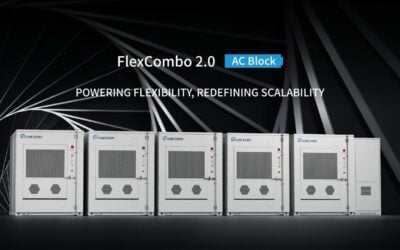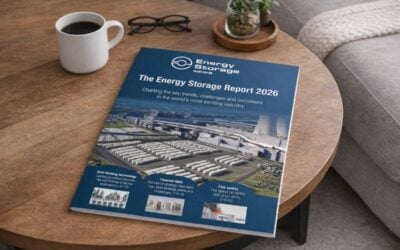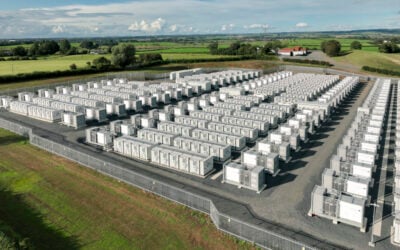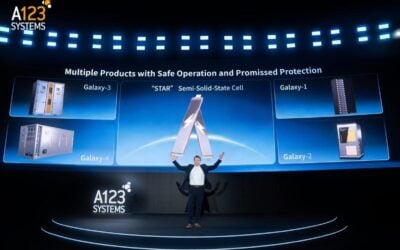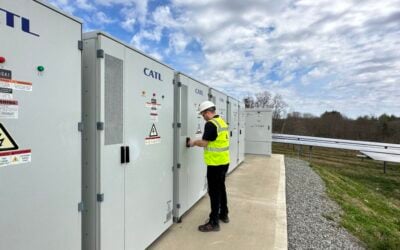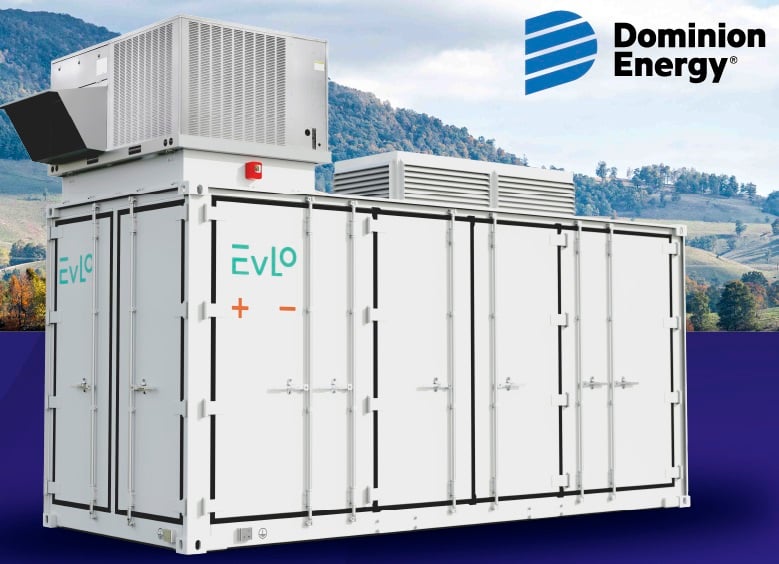
EVLO’s battery energy storage system (BESS) solution has been recertified for the UL9540 standard ahead of deployments for US utility Dominion Energy in Virginia.
EVLO, the battery storage system integrator launched by Canadian utility Hydro-Québec, has been contracted by Dominion Energy to deliver around 300MWh of BESS equipment for three projects in Virginia, as reported by Energy-Storage.news in September.
It was announced at that time that EVLO’s EVLOFLEX configurable BESS solution would be used for the three projects: a 5MWh system for a microgrid, a 75MWh standalone battery storage project and a 225MWh BESS paired with a solar PV array.
The three projects are scheduled to go into commissioning in 2025 and 2026.
Try Premium for just $1
- Full premium access for the first month at only $1
- Converts to an annual rate after 30 days unless cancelled
- Cancel anytime during the trial period
Premium Benefits
- Expert industry analysis and interviews
- Digital access to PV Tech Power journal
- Exclusive event discounts
Or get the full Premium subscription right away
Or continue reading this article for free
The integrator said yesterday (21 November) that Dominion Energy had requested for a version of EVLOFLEX with enhanced fire safety features be deployed at the sites.
While EVLO already got UL9540 certification for the standard product in March this year, the company has just completed recertification for the enhanced version, including the UL9540A burn test, where a battery cell is put into thermal runaway to assess the likelihood of propagation of fire to neighbouring equipment and components.
EVLO claimed it now ‘outperforms’ safety standards and meets or exceeds Dominion Energy’s requirements.
“Through targeted adjustments, we’ve further strengthened EVLOFLEX’s safety features. The integration of an external fire panel control, for example, will facilitate [the] regulatory approval process by authorities having jurisdictions (AHJ). This will benefit both Dominion and future clients seeking for their projects to meet stringent certification standards like NFPA 72 (National Fire Alarm and Signalling Code),” Michel Cousineau, EVLO CTO said.
EVLO said the system’s active and passive thermal runaway mitigation measures also include a design that ensures passive evacuation of gases during a power outage, which again, the company said goes beyond the needs of standards, including the NFPA 69 standard on explosion prevention systems.
EVLOFLEX comes in 1.65MWh, 2MWh and 2.5MWh configurations, with the largest size to be used in the Dominion projects. The company was founded by Hydro-Québec in 2020, leveraging the Canadian utility’s in-house lithium iron phosphate (LFP) BESS platform for international projects.
In March, EVLO head of production innovation and technology development told Energy-Storage.news Jonathan Levesque said that as the subsidiary of a state-owned utility, the integrator approaches product design from a safety-first perspective.
Though at the time Levesque said EVLO had compromised on energy density to deliver EVLOFLEX with the highest standard of safety features, the company recently also launched EVLO SYNERGY, a 5MWh, 20-foot containerised BESS product. This brought it in line with an increasingly common high energy density form factor that other system integrators are pursuing.
Levesque told this site in August that safety technology has already rapidly advanced to enable 5MWh containers to be made and operated safely, while the market has evolved to demand them.
Fire safety standards and certifications continue to be a major topic of conversation in industry and stakeholder conversations about battery storage. Various providers are now conducting large-scale fire testing (LSFT), in effect setting fire to BESS containers and letting them burn, which goes beyond the cell-level thermal runaway testing that UL9540A provides.
Dominion pursues major energy storage pipeline in Virginia, North Carolina
Meanwhile, as one of Virginia’s main utility companies, Dominion Energy has been tasked with procuring a significant portion of the state’s 3.1GW by 2035 energy storage target. Dominion brought its own first pilot projects online in 2022, kicking off progress toward a 2.7GW contribution to that target.
Dominion launched a request for proposals (RFP) for solar, wind and energy storage projects in Virginia in April this year, and in addition to its deal with EVLO has contracted developer EDP Renewables North America to deliver an 85MW/340MWh project.

